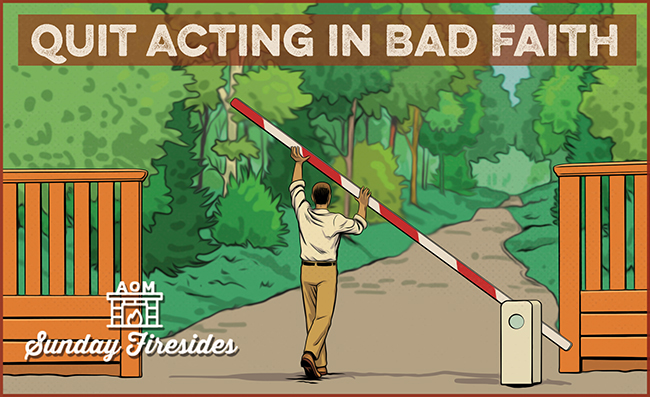
Existentialist philosophers were very big on the idea of free will.
They believed that while circumstances could limit your choices, there were always choices to be made.
Existentialists also argued that while many people make a show of loving freedom, most experience it as a dizzying burden and seek every opportunity to flee from it. To recognize the possibility of possibility, to countenance your personal accountability in every situation, to take radical responsibility for your life, is, in fact, a terrifying prospect.
Faced with this anxiety, people attempt to narrow the scope of their freedom, positing that they are bound by external circumstances to make certain choices; that in such and such a case, their hands are tied.
You might say, for example:
“I can’t change jobs.”
“I can’t lose weight.”
“I can’t break up with her.”
“I can’t go back to school.”
“I can’t move.”
Existentialists said that holding these kinds of beliefs constitutes the exercise of “bad faith.” It is an act of self-deception, an attempt to escape accountability for your actions by arguing that only one possibility is open to you.
The truth is that you can do these things, and an infinite number of others, but have decided not to. You are unwilling to face the pain necessary to catalyze a change; you like safety more than you dislike the status quo; you hold comfort as a higher value than courage; you feel the potential reward does not exceed the potential risk.
It’s fine to make these determinations — after all, these choices, too, are exercises of your agency. But to be made morally, they must be made honestly. You must face the fact that in choosing to deny your freedom, you have only demonstrated it, and if you are free to choose your current path, you are free to choose another.
Help support independent publishing. Make a donation to The Art of Manliness! Thanks for the support!


0 Commentaires